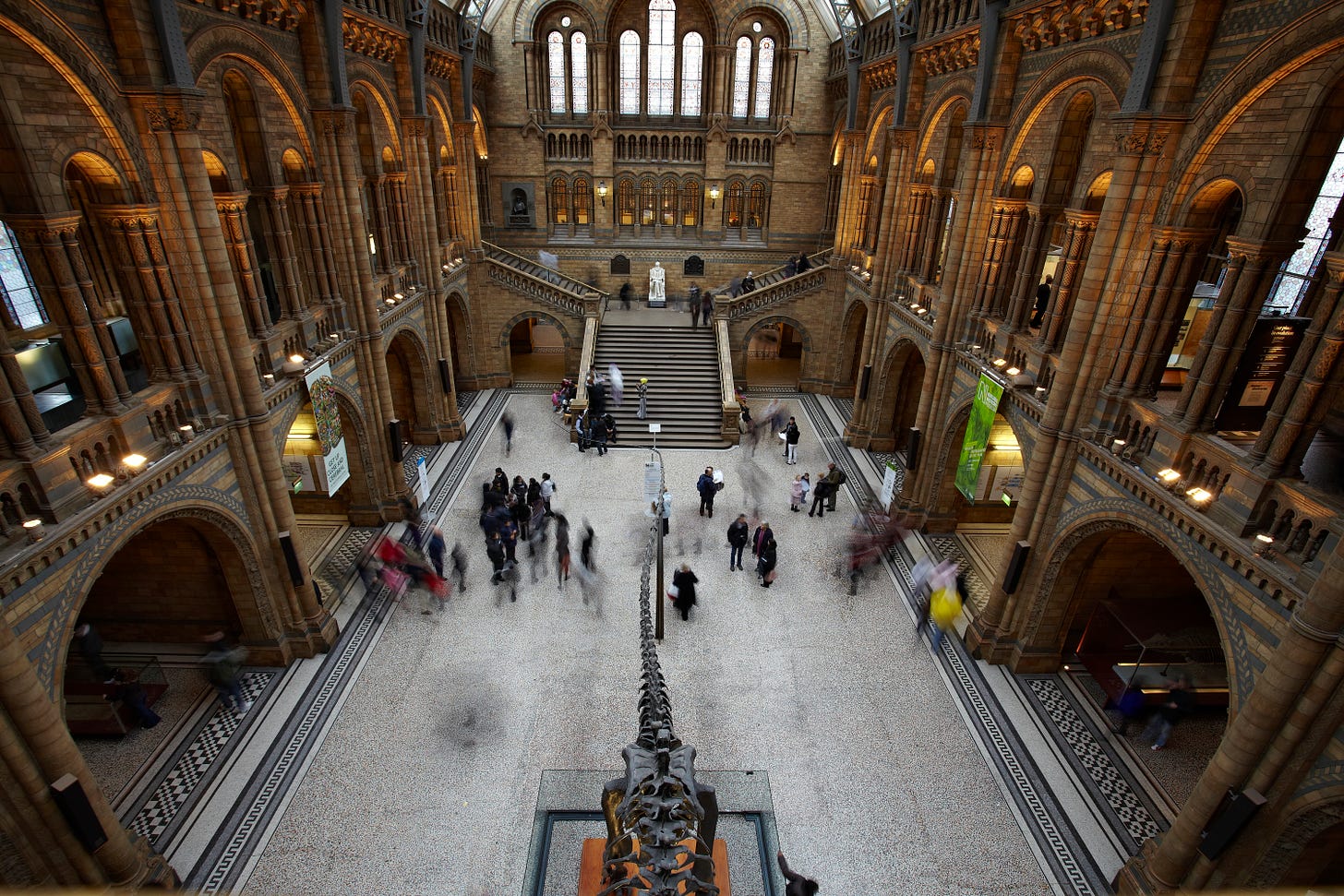When my server crashed, it took my website The museum of the future with it. Over the years, more than one million people (and bots) visited this blog, where I documented my experiences with innovation in museums and beyond. I decided not to restore it.
Early 2017, I collected some of the best-read articles from the blog in a PDF. Apart from a document of the most important posts, it also introduced the blog and its impact on my life:
I started The Museum of the Future in May 2009 to document my work at the National History Museum of the Netherlands. At the time, we pioneered new digital and participatory approaches in museums. When the museum had to end, I continued the blog to write about the projects I did and ideas I developed in my new role as a consultant. The scope of the blog broadened, but the focus remained on audiences, meaningful engagement and participation.
I’ve always been surprised by the impact the blog has had. Its almost two-hundred posts have been read over half a million times. Many have been republished in newsletters, magazines and books. A handful have been translated. At least 50 students and others have used my posts in their research. (Thanks for the citations!)
What continues to amaze me, are the opportunities the blog creates. I meet so many great people because of it, am invited to speak at wonderful events, hired to work on amazing projects, and interviewed on radio and television. In turn, these experiences have allowed me to see some of the world’s most fascinating museums. And then, many of these experiences turn into new posts: the blog is a perpetuum mobile of ideas.
The 2017 overview misses some of the most exciting projects I’ve worked on and all of my return to sustainable development. Projects like IFLA’s global vision (a co-creation process involving 40+k librarians from 193 countries) and Festival 2030 this September (strengthening a city’s potential to respond to crises with 25+k people) could serve as a powerful conclusion to the blog. In addition, smaller, subtler projects in Russia, Canada, or The Hague have added breadth and depth to my experience. I’ve saved the SQL database, so I can always make an updated pdf.

It is the time of year to be nostalgic. It’s also the time of my career to be nostalgic. We’ll disband the consultancy I’ve been a partner in at the end of the year. Not so much a victim of COVID’s long arm as of the continuing professional development of the partners. Personally, I no longer want to live the global jet-setting life that the work entailed. I will continue in my role as director of Stichting 2030. Because that role is largely unpaid, I will also be looking for new work that will help me take a further step forward.
As one does when nostalgic (and job hunting), I’ve been going through old tweets. My first remaining tweet is from 2007. It surprises me how resilient the platform is. While the nature of tweets has changed, it still does essentially what it did 15 years ago. Imagine all the changes Facebook’s been through in that time.
Most of my oldest tweets are direct responses to Twitter’s prompt at the time: “What are you doing?” They didn’t age well: With changes in Twitter’s prompt and most of their interaction gone, they sound like screams into the nothingness. Old Twitter is no echo chamber. “What’s happening?” clearly, is a better way to start a lively conversation. Anyway.
2007 was a long time ago. My third tweet is about a study trip I organized to Tanzania. Not all the exciting projects I worked on were recent. My Twitter was relatively quiet for a while, all through my years in Madrid, and then picked up speed when I started working in the cultural sector.
I don’t feel this newsletter counts as blogging, which means that now that The Museum of the Future has gone, I’m without a blog for the first time since 2005. Some traces remain on other platforms Evan Williams invented: Blogger, Medium, but none that sparked the conversations of TMOTF.
‘Most blogs do not tell a coherent story, and mine is no exception,’ I wrote in the intro to the 2017 collection. This is true, but blogging has been a great way to structure my own thinking and professional development. I wouldn’t recommend starting a blog now. They’re too much a thing of the past. But I recommend taking the time to structure your thoughts publicly and with a good archive. At least until your server crashes.
Thanks for joining me on this journey! See you next week,
Until then, all the best,
— Jasper



Sad to see this blog go Jasper. The very name of it with the word Future gave a very positive feeling, and the content usually matched that feeling. Even though it was sometimes far off my bed as we say in Dutch.